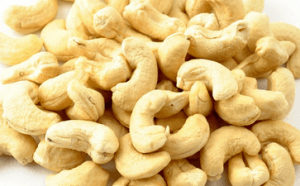Cocoa Research Institute produces new cashew variety that ‘escapes’ heat season
 The Cocoa Research Institute and the Ministry of Food Agriculture have produced a cashew variety that drops its nuts early before the heat season – February and March.
The Cocoa Research Institute and the Ministry of Food Agriculture have produced a cashew variety that drops its nuts early before the heat season – February and March.
They have also developed a simple irrigation technique using disposed 1.5 litre bottles to reduce seedling mortalities.
Dr Paul Krah Adu-Gyamah, Scientific Director of Conference of the Consultative International Cashew Council (CICC), told journalists.
He said the breakthrough was a giant step towards reducing impact of climate change on cashew production to boost yield.
Dr Adu-Gyamah said this on the sidelines of a cashew research dialogue ahead of the 6th Council of Ministers’ Conference of CICC from 16th to 20th of April, 2024 in Accra
The conference is expected to serve as an opportunity to demonstrate the progress made in the cashew sector and attract investors to the industry.
It will be under the theme: “Projecting the Cashew Sector through local Consumption, Value Addition and Job Creation”.
Dr Adu-Gyamah said another output of a recent research had resulted in the increase in yields of cashew from four kilogrammes per tree to about 2.5 tonnes per hectare.
“They were in two different studies. The yield for the first variety was between 800kilogrammes per hectare to 2.5 tonnes per hectare while the second variety increased yields between two to 2.5 tonnes,” he said.
Dr Adu-Gyamah, while celebrating the milestones, acknowledged that the uptake of the technologies by farmers was slow and urged farmers to embrace the innovation to increase cashew profitability.
In the area of pests and diseases, the CICC Scientific Director stated that scientists were piloting the use of biological control agents to address the challenge instead of chemical control.
Mr Yaw Frimpong Addo, a Deputy Minister of Food and Agriculture in charge of Crops, said the technical meeting would help strengthen the country’s research and development, facilitate idea sharing and best practices.
It would help the government to develop tailor-made policies to develop the sector to harness its potential.
“Cashew is one of the crops that is helping Ghana to sustain its forest cover and also preventing the Saharan from pushing its boundaries,” he said.
Mr Seth Osei Akoto, a former Director of Crop Services at MOFA, said the general concern was low cashew yield and that presentations made by countries, including Ghana showed that productivity could be improved.
While Ghana’s current productivity was between 800 to 1.2 kilogrammes, he said that other countries hovered around 300 to 500 kilogrammes.
He urged the government and development partners to invest in research to enhance production.
The CICC is an international organisation with legal capacity and financial autonomy responsible for promoting the sustainable development of cashew in the world.
Established on the 18th of November, 2016, in Abidjan, Côte d’Ivoire, the CICC aims to create a consultation framework and synergies between member states for a sustainable cashew sector.
The Organisation also aims to promote the development of the cashew sector in the Member States through the coordination of policies and cooperation between States.
To date, eleven countries are members of the CICC.
They are Benin, Burkina Faso, Cameroon, Côte d’Ivoire, Ghana, Guinea, Guinea-Bissau, Mali, Nigeria, Senegal, and Togo.
Source: GNA
